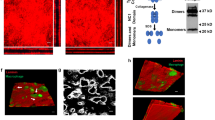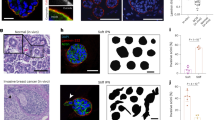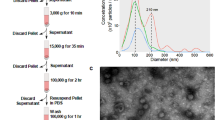Abstract
The relative importance of different proteinases, and their inhibition, in the breakdown of human endothelial basement membrane (BM) by MDA-MB-231 and MCF7ADR human breast cancer cell lines has been studied using 35S-labelled BM-coated 96-well culture plates. Basement membrane degradation (BMD) was independent of cell proliferation above the seeding density. Inhibitors of aspartic (pepstatin and PD 134678-0073) and cysteine proteinases (E64) had little effect on BMD under normal culture conditions, suggesting that cathepsins D, B and L have only a minor role. In contrast, inhibitors of urokinase-type plasminogen activator (uPA) and/or plasminogen activation to plasmin (aprotinin, amiloride, EACA, tranexamic acid, anti-uPA antibody) all reduced BMD by MDA-MB-231 cells by approximately 30-40%, but only in the presence of serum or plasminogen. BB94, an inhibitor of matrix metalloproteinases (MMPs), also reduced BMD by about 30% under these conditions but was similarly effective in serum-free medium. Combinations of BB94 with any of the uPA/plasminogen activation inhibitors in serum-containing medium had additive effects, while BB94 with pepstatin and E64 under serum-free conditions reduced BMD to 16% of control. Serum-containing conditioned medium exhibited appreciable BMD, largely due to aprotinin-inhibitable activity. Although small reductions in cell proliferation were seen with some inhibitors, the combination of BB94 with E64 or E64d reduced the cell population by about 60% under serum-containing conditions. These in vitro observations suggest that combinations of proteinase inhibitors, particularly of uPA/plasminogen activation and MMPs, may merit clinical evaluation as potential antimetastatic therapy for breast cancer.
This is a preview of subscription content, access via your institution
Access options
Subscribe to this journal
Receive 24 print issues and online access
$259.00 per year
only $10.79 per issue
Buy this article
- Purchase on Springer Link
- Instant access to full article PDF
Prices may be subject to local taxes which are calculated during checkout
Similar content being viewed by others
Author information
Authors and Affiliations
Rights and permissions
About this article
Cite this article
Stonelake, P., Jones, C., Neoptolemos, J. et al. Proteinase inhibitors reduce basement membrane degradation by human breast cancer cell lines. Br J Cancer 75, 951–959 (1997). https://doi.org/10.1038/bjc.1997.166
Issue Date:
DOI: https://doi.org/10.1038/bjc.1997.166
This article is cited by
-
The Role of Perioperative Pharmacological Adjuncts in Cancer Outcomes: Beta-Adrenergic Receptor Antagonists, NSAIDs and Anti-fibrinolytics
Current Anesthesiology Reports (2015)
-
Immunochemical analysis of cathepsin B in lung tumours: an independent prognostic factor for squamous cell carcinoma patients
British Journal of Cancer (1999)
-
Proteolysis in human breast and colorectal cancer
British Journal of Cancer (1999)



